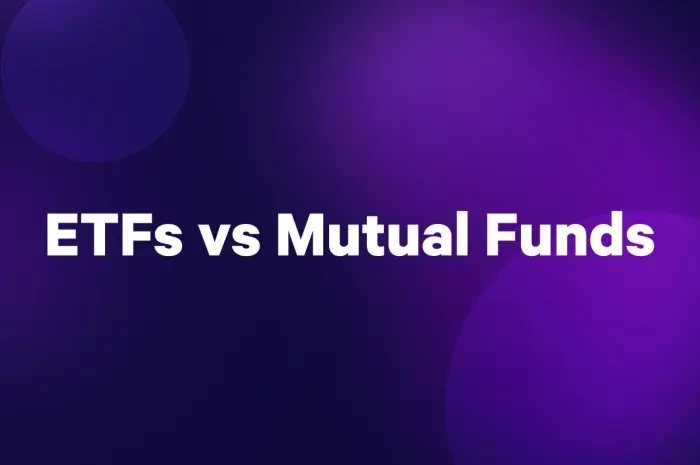Index Funds vs. Mutual Funds: Understanding the Differences
Investing is a key component of financial planning, and two of the most popular options are index funds and mutual funds.
While both provide access to diversified portfolios, they have distinct characteristics that cater to different investment goals and strategies.
This guide breaks down the differences, benefits, and considerations to help you decide which option suits your needs best.
What Are Index Funds?
Index funds are a type of mutual fund or exchange-traded fund (ETF) that aim to replicate the performance of a specific market index, such as the S&P 500 or Nasdaq 100.
These funds are passively managed, meaning they simply track the index rather than trying to outperform it.
Key Features of Index Funds:
- Passive management.
- Lower fees compared to actively managed funds.
- Performance closely tied to the index being tracked.
What Are Mutual Funds?
Mutual funds pool money from investors to create a diversified portfolio of assets, such as stocks, bonds, or a combination of both.
Mutual funds can be actively managed (where a fund manager selects investments to outperform the market) or passively managed (like index funds).
Key Features of Mutual Funds:
- Active or passive management.
- Broader range of investment strategies.
- Potential for higher fees due to active management.
Differences Between Index Funds and Mutual Funds
| Feature | Index Funds | Mutual Funds |
| Management Style | Passive | Active or Passive |
| Objective | Matches the index’s performance | Aims to outperform benchmarks (active) |
| Expense Ratios | Lower (typically 0.03%-0.2%) | Higher for actively managed funds |
| Performance | Matches the index | Dependent on fund manager skill |
| Tax Efficiency | More tax-efficient | Less tax-efficient due to frequent trades |
| Flexibility | Limited to tracking specific indices | Wide range of strategies and objectives |
Benefits of Index Funds
- Low Costs: Expense ratios are significantly lower because they don’t require active management.
- Predictable Performance: Matches the performance of the index, making it easier to understand.
- Tax Efficiency: Fewer trades mean fewer taxable events, which benefits investors in taxable accounts.
- Diversification: Provides exposure to the entire market or specific sectors.
- Simplicity: Great for beginners due to straightforward investment strategies.
Benefits of Mutual Funds
- Active Management Potential: Skilled fund managers aim to outperform the market, which can lead to higher returns.
- Customization: A wide variety of funds cater to specific goals, such as income, growth, or balanced strategies.
- Access to Niche Markets: Some mutual funds focus on specific sectors, regions, or themes not available in index funds.
- Rebalancing: Active management ensures the portfolio is continuously adjusted to changing market conditions.
Drawbacks of Each
Index Funds:
- No potential to outperform the market.
- Limited to the performance of the index being tracked.
Mutual Funds:
- Higher fees, which can reduce net returns.
- Performance depends heavily on the fund manager’s expertise.
- Less tax-efficient due to frequent trading.
When to Choose Index Funds
Index funds are ideal for:
- Long-term investors seeking consistent and predictable returns.
- Cost-conscious investors prioritizing low fees.
- Beginners who want a simple, hands-off investment approach.
- Tax-conscious investors using taxable accounts.
When to Choose Mutual Funds
Mutual funds are suitable for:
- Investors willing to pay higher fees for the potential to outperform the market.
- Those seeking actively managed portfolios tailored to specific goals.
- Investors who prefer professional management and don’t want to monitor market trends.
- Diversification into niche markets or specific sectors.
Examples of Popular Funds
Index Funds:
- Vanguard 500 Index Fund (VFIAX): Tracks the S&P 500.
- Fidelity ZERO Total Market Index Fund (FZROX): Offers broad market exposure with no fees.
- Schwab Total Stock Market Index Fund (SWTSX): Covers the entire U.S. stock market.
Mutual Funds:
- Fidelity Growth Company Fund (FDGRX): Focuses on high-growth stocks.
- Vanguard Wellington Fund (VWELX): A balanced fund combining stocks and bonds.
- American Funds Capital Income Builder (CAIBX): Emphasizes income and stability.
Combining Both for a Balanced Portfolio
Many investors use both index and mutual funds to create a diversified portfolio. For example:
- Core Holdings: Use index funds for broad market exposure and low costs.
- Complementary Holdings: Add mutual funds for specialized strategies or sectors.
Index funds and mutual funds each have their strengths and weaknesses, and the best choice depends on your financial goals, risk tolerance, and investment strategy.
Index funds are ideal for low-cost, long-term investing, while mutual funds offer the potential for higher returns through active management.
By understanding the differences and evaluating your needs, you can build a well-rounded portfolio that aligns with your financial objectives.
Always consider consulting a financial advisor if you’re unsure which investment option is best for you.













